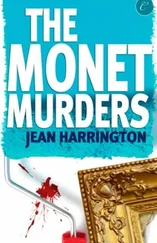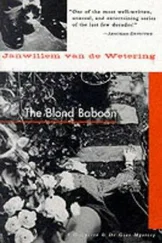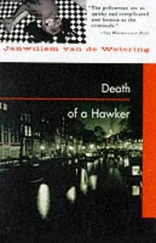Janwillem De Wetering - The Mind-Murders
Здесь есть возможность читать онлайн «Janwillem De Wetering - The Mind-Murders» весь текст электронной книги совершенно бесплатно (целиком полную версию без сокращений). В некоторых случаях можно слушать аудио, скачать через торрент в формате fb2 и присутствует краткое содержание. Жанр: Полицейский детектив, на английском языке. Описание произведения, (предисловие) а так же отзывы посетителей доступны на портале библиотеки ЛибКат.
- Название:The Mind-Murders
- Автор:
- Жанр:
- Год:неизвестен
- ISBN:нет данных
- Рейтинг книги:3 / 5. Голосов: 1
-
Избранное:Добавить в избранное
- Отзывы:
-
Ваша оценка:
- 60
- 1
- 2
- 3
- 4
- 5
The Mind-Murders: краткое содержание, описание и аннотация
Предлагаем к чтению аннотацию, описание, краткое содержание или предисловие (зависит от того, что написал сам автор книги «The Mind-Murders»). Если вы не нашли необходимую информацию о книге — напишите в комментариях, мы постараемся отыскать её.
The Mind-Murders — читать онлайн бесплатно полную книгу (весь текст) целиком
Ниже представлен текст книги, разбитый по страницам. Система сохранения места последней прочитанной страницы, позволяет с удобством читать онлайн бесплатно книгу «The Mind-Murders», без необходимости каждый раз заново искать на чём Вы остановились. Поставьте закладку, и сможете в любой момент перейти на страницу, на которой закончили чтение.
Интервал:
Закладка:
He was back within minutes, waving paper. "Hear this. In German but I'll try to translate it. Karl Mtiller, businessman, import and export of lumber, apart from legitimate business possibly active in unproved drug dealing on large scale. Please let us know immediately if you can produce charge. Hamburg Police, Criminal Investigation Department, Narcotics Branch, signed Inspector Hans Wingel."
Grijpstra read the teletype message and gave it to Asta. He began to pace the room.
"So now we have some sort of construction. Ever since I heard that Jim Boronski lived in Colombia, I suspected drugs. We know that the stufi coming from Turkey is being intercepted too often, and the supply is irregular anyway. Colombia is a new source that seems more efficient, and the hashish and marihuana that originates there is of good quality. The Colombians also sell cocaine, and cocaine ranks about as high as heroin, in price, that is. A smart man like Boronski and another smart man like Miiller would prefer to deal in cocaine; just a few pounds make a golden deal. So now let's assume that Boronski played foul and that Miiller got annoyed. He harasses Boronski to the point where he drops dead."
"In Miiller's car," de Gier said.
"RIGHT!" shouted Grijpstra. "That's where we go wrong. Every time. The whole silly thing is impossible. Boronski is sick, he gets sicker, he dies. That's all we have. We should close the case and go home. There's no logic in it. See you tomorrow." He put on his jacket and stamped out of the room.
"I haven't got a car," said de Gier, "but I could walk you home. You'll be safe, your landlady doesn't approve of male visitors."
"You can kiss me here."
De Gier bent down and kissed her.
"Is that the way you kiss? Just smack?"
She embraced him. "Can't you bend your knees? Or shall I stand on a chair?"
"No."
"All right, I'll take you home. My car is only two blocks from here and you live in the southside of the city; you have no car and it's a long bus ride."
"Who told you that?"
"Sergeant Jurriaans. I know that you are single and that you live with a cat in a luxurious apartment and that you have no current girlfriend."
"I'm married, I have four kids, and my wife worries about me."
"No."
"Didn't you say that Jurriaans can't be trusted?"
She opened the door. "Let's go, darling."
The car was an old compact Ford, battered and rusty. The inside was cluttered with clothes, cartons of cigarettes, and frayed wicker baskets containing odd objects. She made room on the passenger seat. The dashboard was cluttered too. A faded cloth tiger was glued to the loudspeaker. De Gier counted three boxes of tissues of different brands, all opened.
"How can you look so neat when you drive about in this junk pile?"
"Different parts of my mind manifest themselves in different ways. There's nothing wrong with this car, everything works."
She drove fast and paid little attention to traffic lights. De Gier hardly noticed. Her hand was on his shoulder. I'm in love, he thought. I haven't been in love for years. It's as if I knew the girl since the day I began my first life. He looked at the tiger, rooted solidly in the framework of the loudspeaker. Maybe we hunted saber-toothed tigers together when we were still apes. This is absurd. I don't want to be in love.
"This is south, am I going the right way?"
He gave her the address. She turned through a red light and put her foot down. A patrol car's siren howled behind them. She parked in front of the apartment building. The patrol car screeched to a halt and two constables came running up. Asta got out and showed her card. De Gier got out too.
"Evening."
"Evening, sergeant."
"Are you busy tonight?" de Gier asked.
"No, sergeant. Maybe later. There's a thriller on TV, all the crooks are watching it. Maybe later we'll find something to do."
"Good hunting."
"Thank you. You wouldn't be taking this constable home for pleasure, would you, sergeant?"
"He's thinking of it, but he won't get anywhere," Asta said. "Good night."
The patrol car drove off, the constables grinned and waved.
"Would you come up for a drink?" de Gier asked.
"I would."
They drank on the balcony; it was only a small balcony, but she kept away from him. He went inside to feed his cat. The cat purred and ran to the balcony. Asta picked it up. "You're ugly, you have too many colors."
De Gier came out to water his geraniums. "She's got the colors of a Persian carpet, that's why she's called Tabriz. Can I make you a meal? I've got some noodles and frozen soup, they might go well together. I could toss a salad, too."
They ate and washed up together. De Gier thought he should be flirtatious but couldn't think of suitable words. The girl was quiet and efficient. He didn't have to tell her where to put the dishes; she opened the cupboard and found the right places.
"Coffee?" he asked.
"No, sergeant, I think I
"No, sergeant, I think I should go." She raised her head and he kissed her lightly. When he tried to embrace her, she stepped out of his arms. "No. I'll see you tomorrow."
He pulled his only easy chair onto the balcony and sat with the cat on his lap. The cat turned over and he pulled at some hair that had matted together. The cat groaned. "I won't do it if you don't want me to." The cat didn't move. He tugged. Suddenly the cat jumped away and a sizable cluster of hair stayed in his hand. "Bothered you, did it? Used me as a tool, did you? Clever Tabriz." The cat wanted to come back, but he got up. "I don't want to work, Tabriz, I want to stay here and be with you, but I think there may be something to do." He looked at the sky; heavy clouds floated toward each other. "No car and it'll be raining." He put on a round cotton hat and took the elevator down to the basement where he extracted an old bicycle out of the clutch of another.
Half an hour later, a lone cyclist entered the inner city. The dying sun touched the lining of clouds that were lowering themselves on the spires of medieval churches. He left his cycle under a tree at the Brewers-canal and became a pedestrian. The herringstall on the bridge across from Hotel Oberon was doing a brisk business. He bought a herring, liberally sprinkled with chopped onions, and retired under the awning at the side to eat it in peace.
"Evening," a portly gentleman said.
"Evening," de Gier said. "I thought you had gone home."
"I didn't. I've been here for an hour and a half. I've eaten six herrings. He hasn't come out yet. Stay here, I'll have a beer at Beelema's. I'll be right back."
6
"There," Grijpstra said.
They moved simultaneously, each taking a side of the man, keeping well back. Mtiller waddled ahead, carrying a flat case. It was dark by now and the ornamental street lights, spaced far apart, played with the fat man's shadow. They also played with another shadow, slim and sharp, darting in and out of the lights. The shadow was attached to a girl, dressed in faded jeans and a trim jacket, bouncing on high-heeled sneakers. De Gier, on the waterside, and Grijpstra, inconspicuously merging with the walls of small and narrow houses, lagged even farther behind. Two more shadows joined the procession; they had sneaked from a side alley. They moved as gracefully as the girl. They were tall and thin, as black as their owners, who were both in their late teens or early twenties, with shaved skulls, sporting leather jackets and tapered dungarees.
Rapists, Grijpstra thought.
Robbers, de Gier thought.
Can't have that, they both thought. Neither man was concerned about the girl's safety at that moment. They were hunting and Miiller was the prey. If the boys caught up with the girl, there would be a scuffle, some noise, a scream maybe. Miiller would be distracted and not do what he was supposed to do, or do it in a different manner, adding complications to the simple situation that now faced the original pursuers. One of the muggers followed the line of trees bordering the canal, the other adopted Grijpstra's tactics. Neither of them was aware of the danger behind. De Gier ran, Grijpstra lumbered. De Gier drew his knife faster than Grijpstra.
Читать дальшеИнтервал:
Закладка:
Похожие книги на «The Mind-Murders»
Представляем Вашему вниманию похожие книги на «The Mind-Murders» списком для выбора. Мы отобрали схожую по названию и смыслу литературу в надежде предоставить читателям больше вариантов отыскать новые, интересные, ещё непрочитанные произведения.
Обсуждение, отзывы о книге «The Mind-Murders» и просто собственные мнения читателей. Оставьте ваши комментарии, напишите, что Вы думаете о произведении, его смысле или главных героях. Укажите что конкретно понравилось, а что нет, и почему Вы так считаете.












